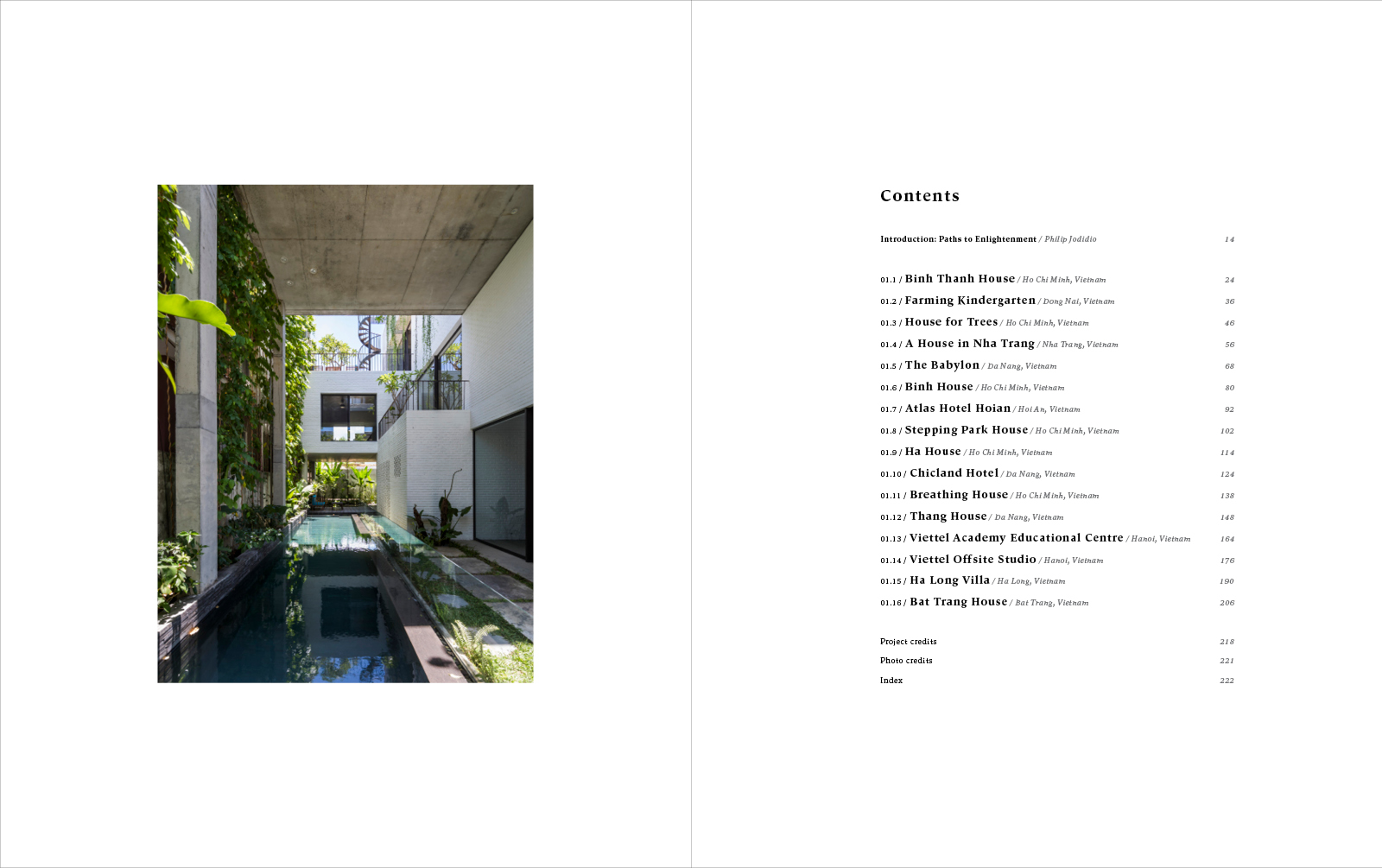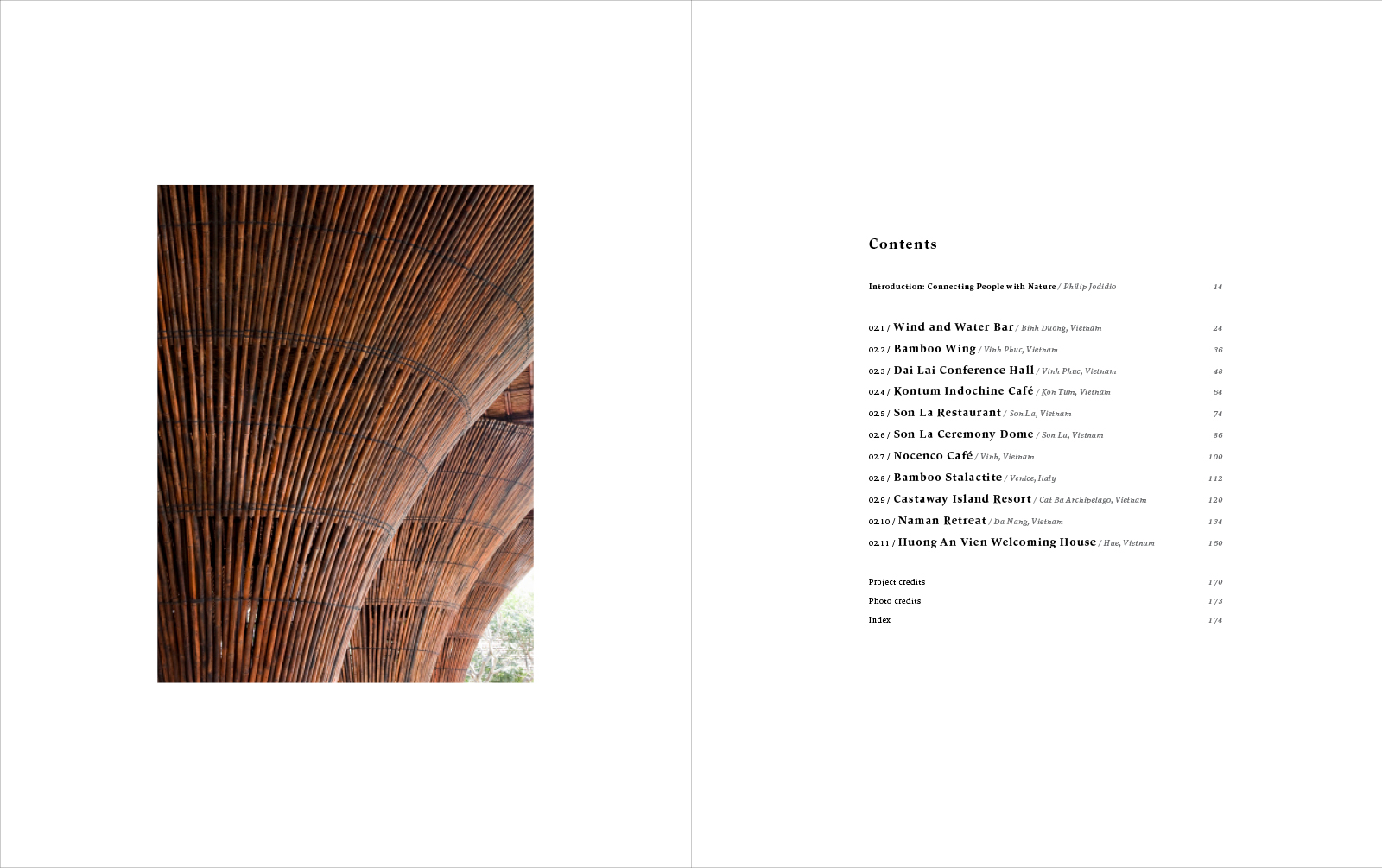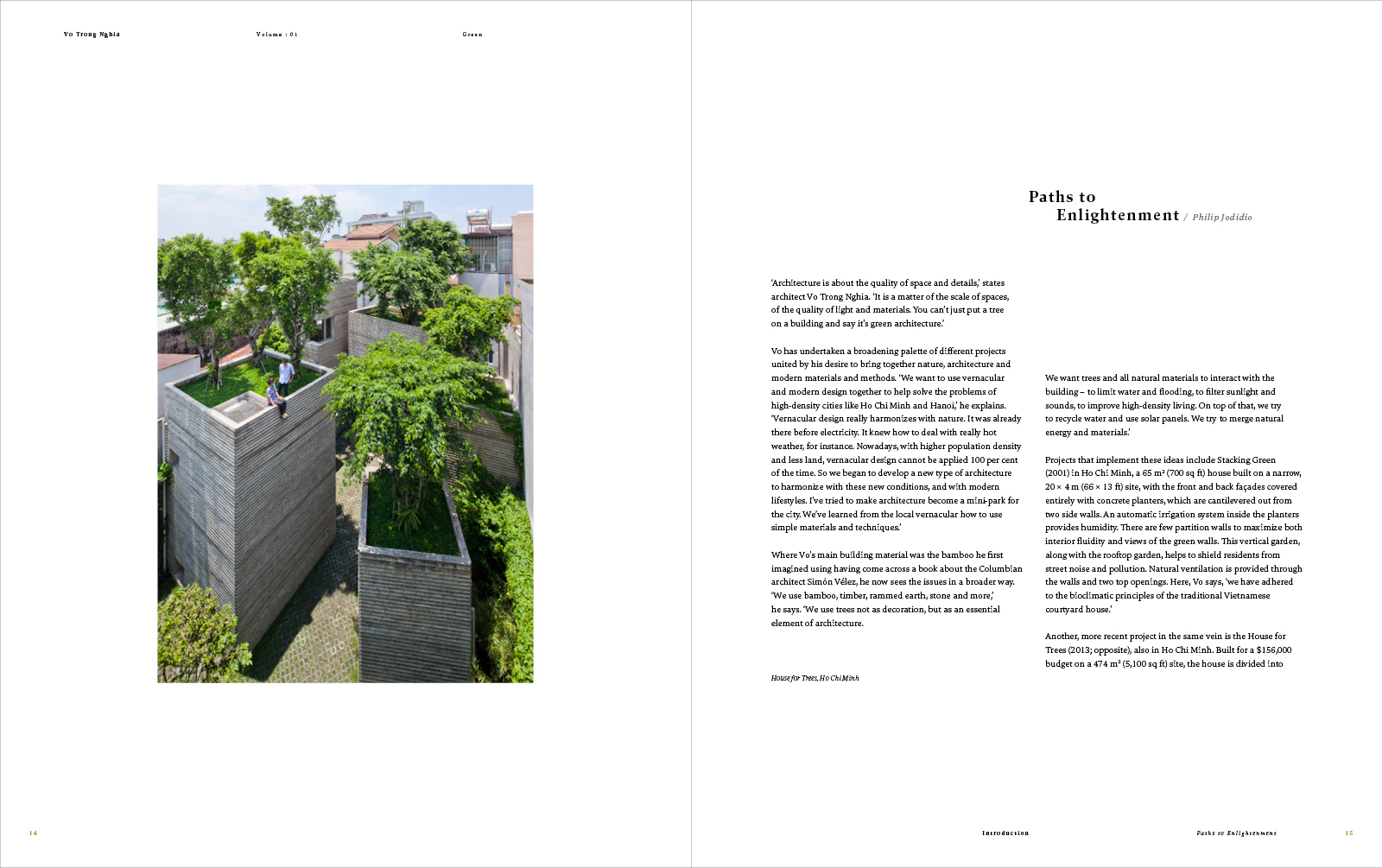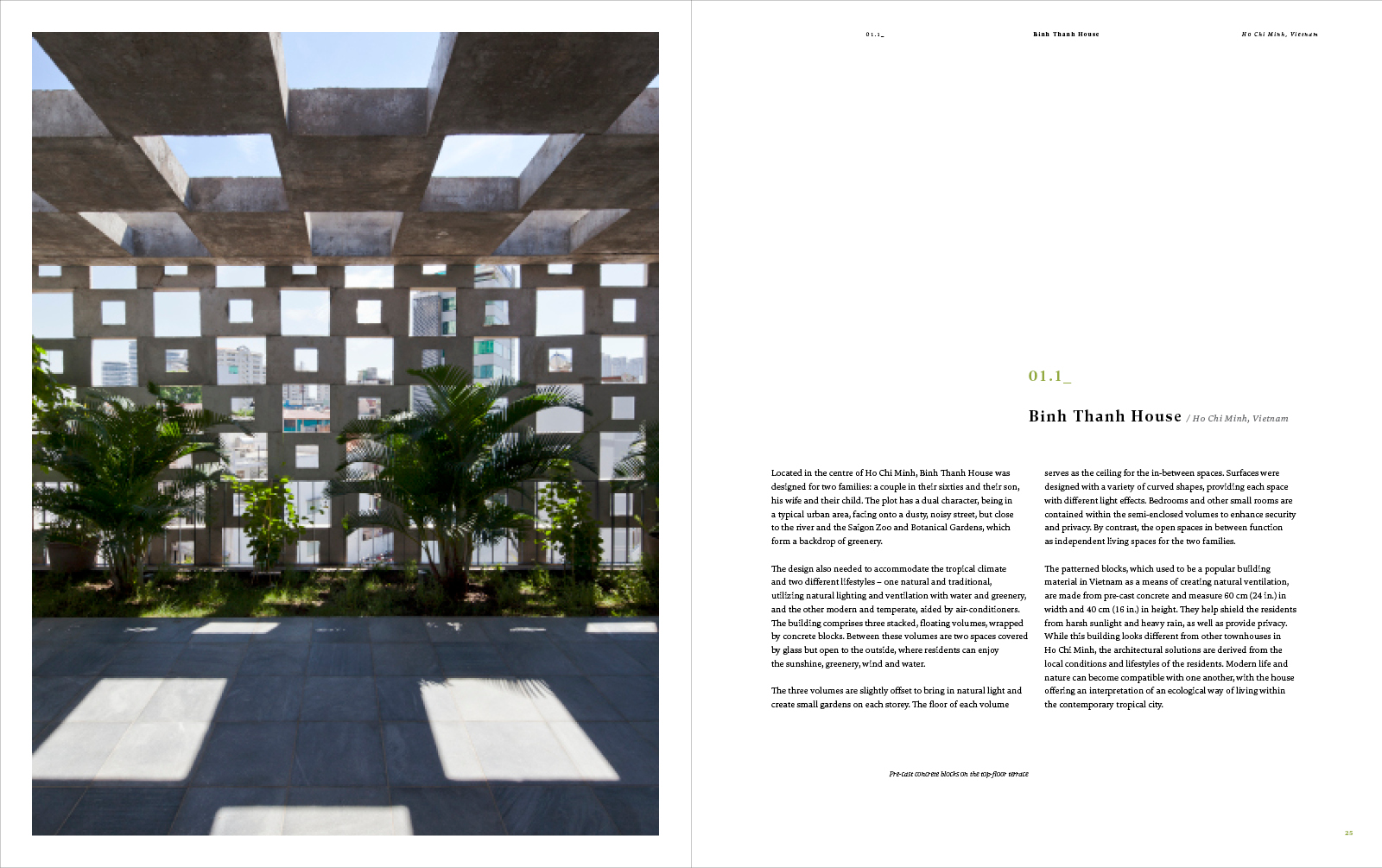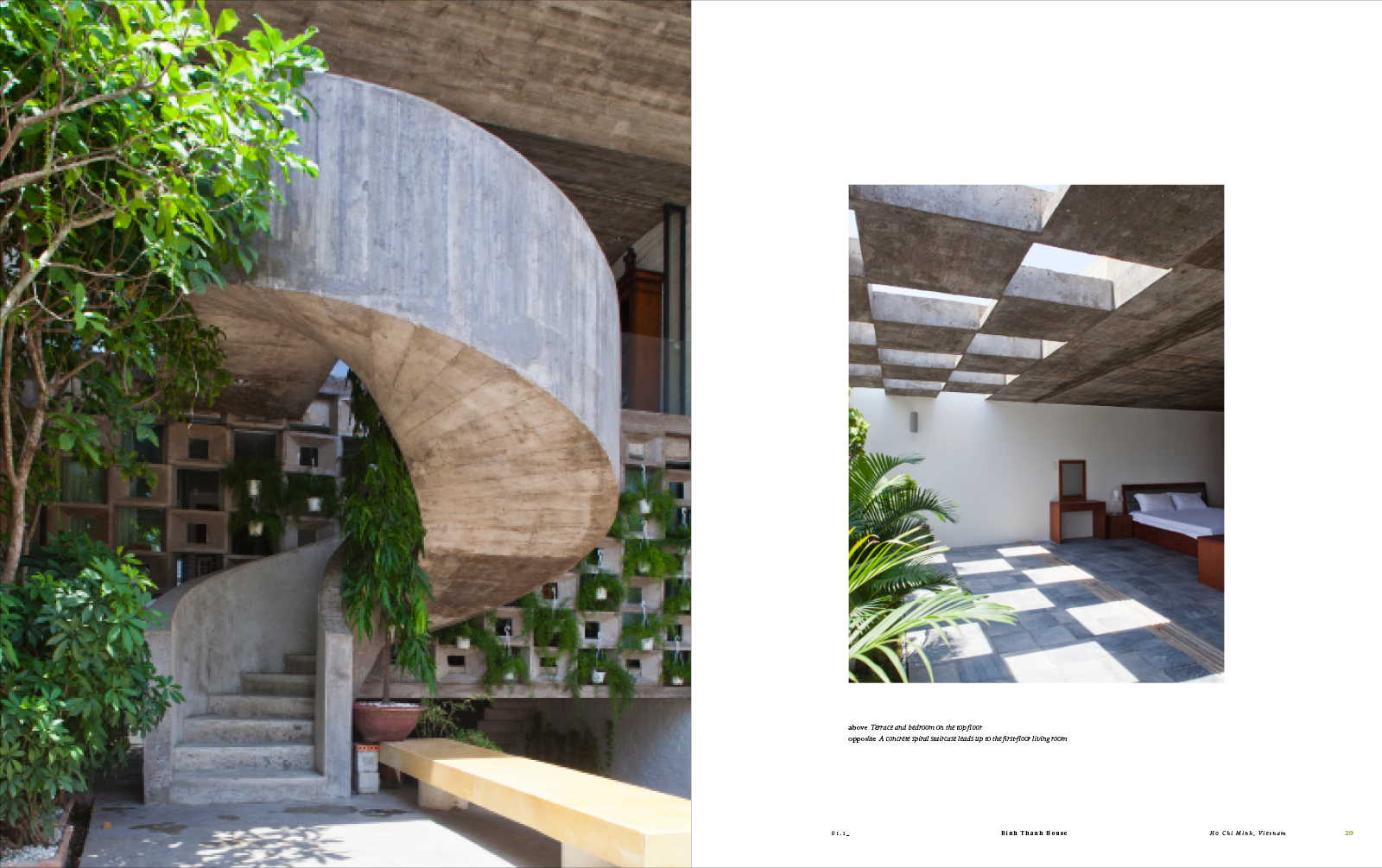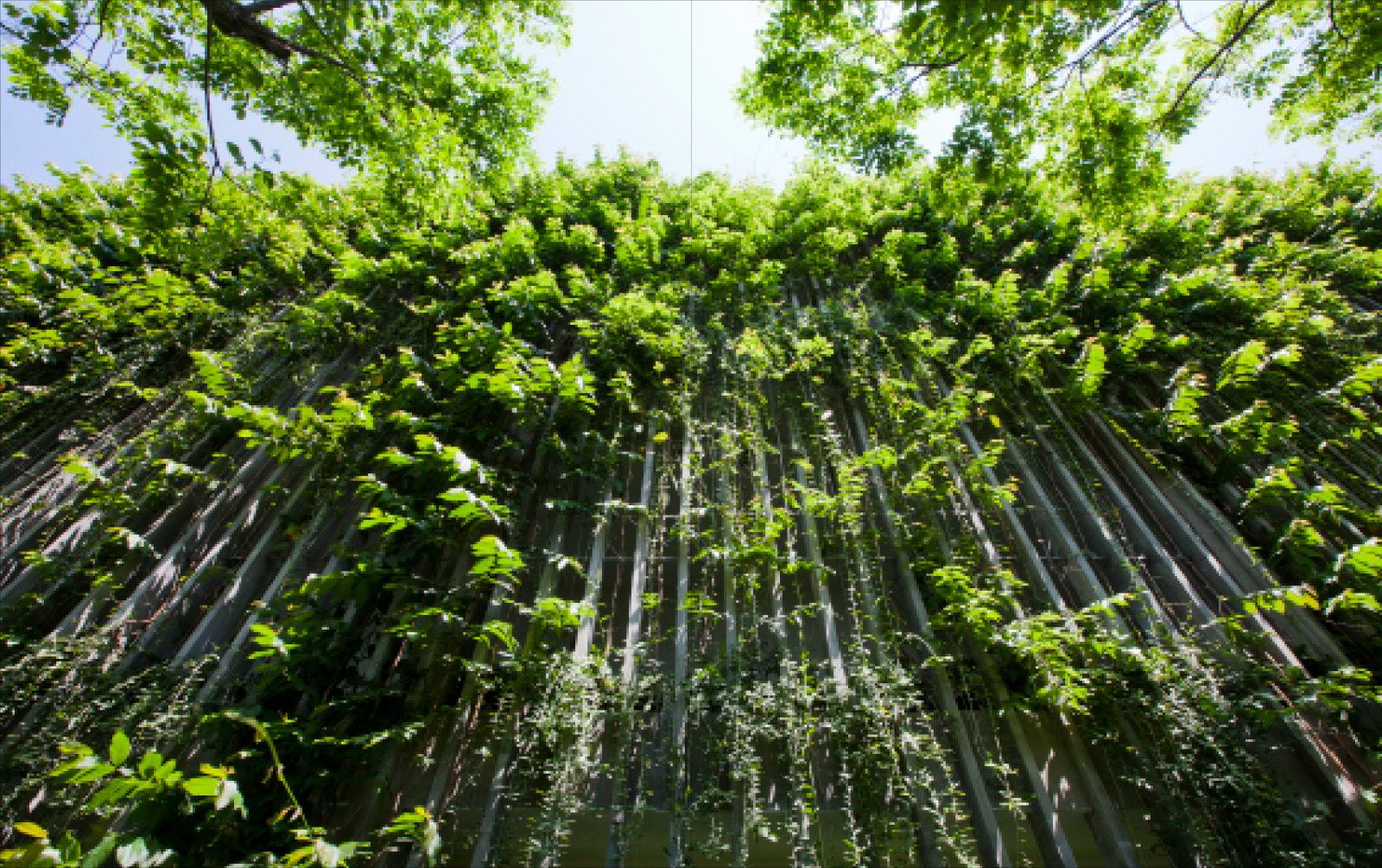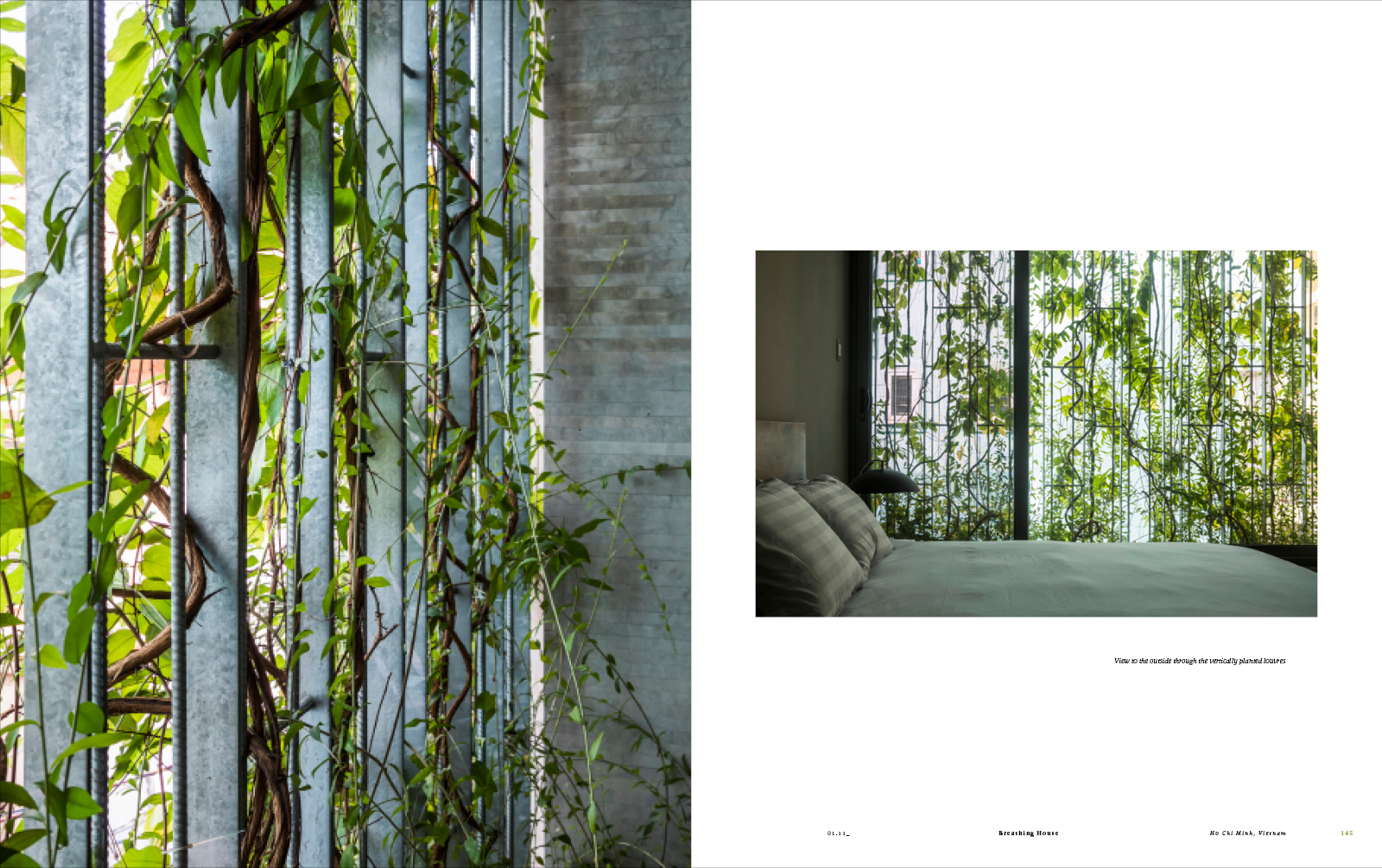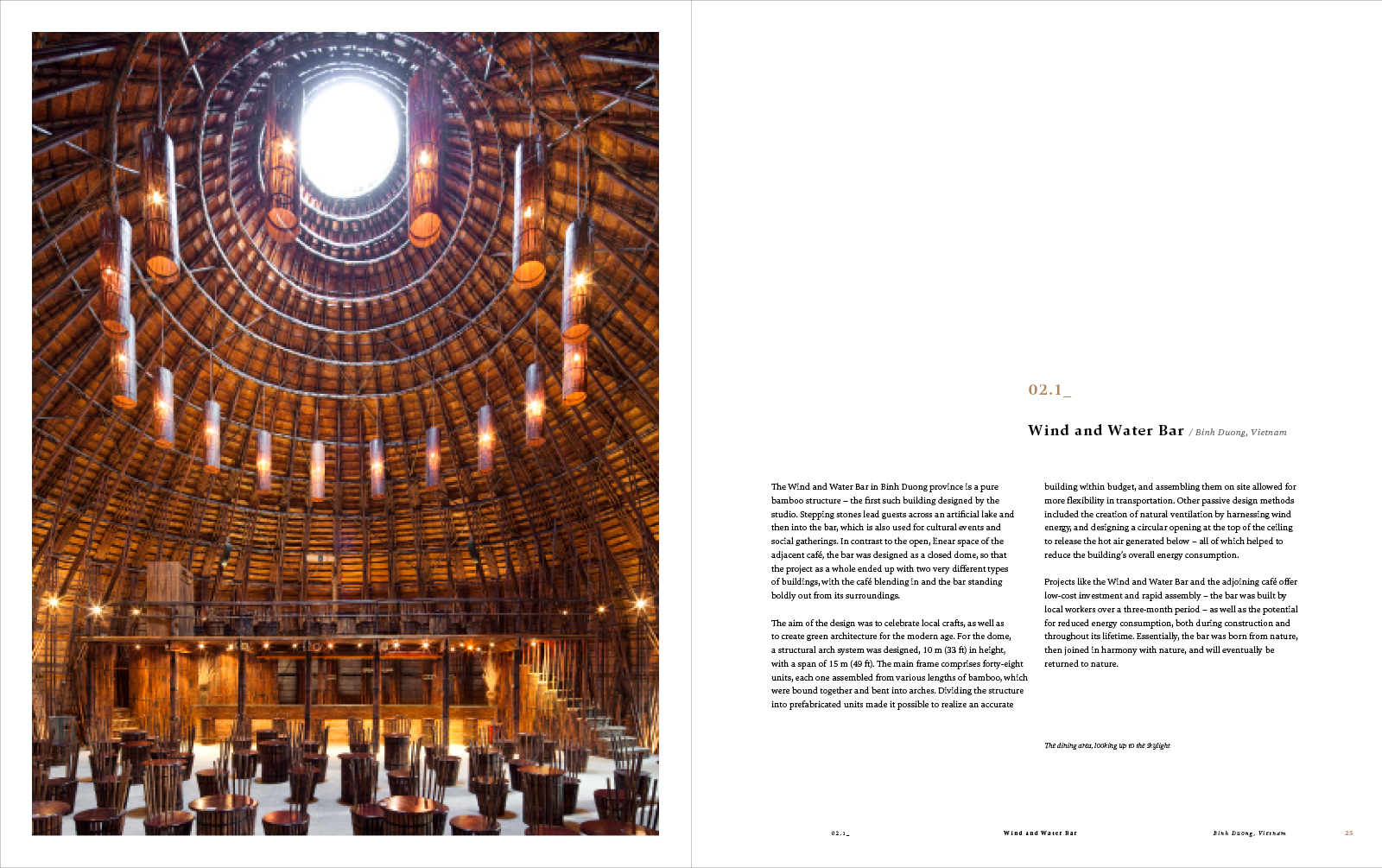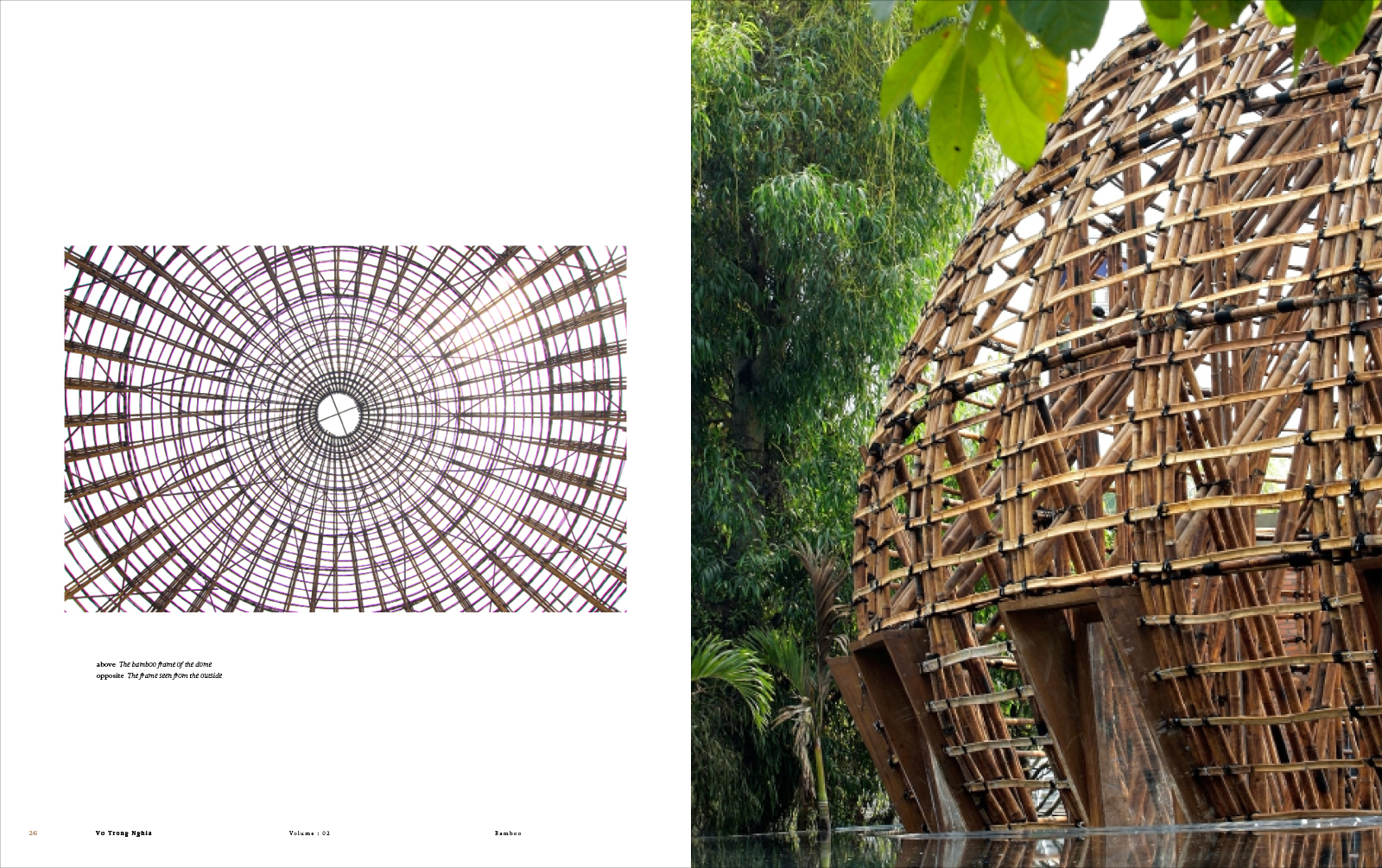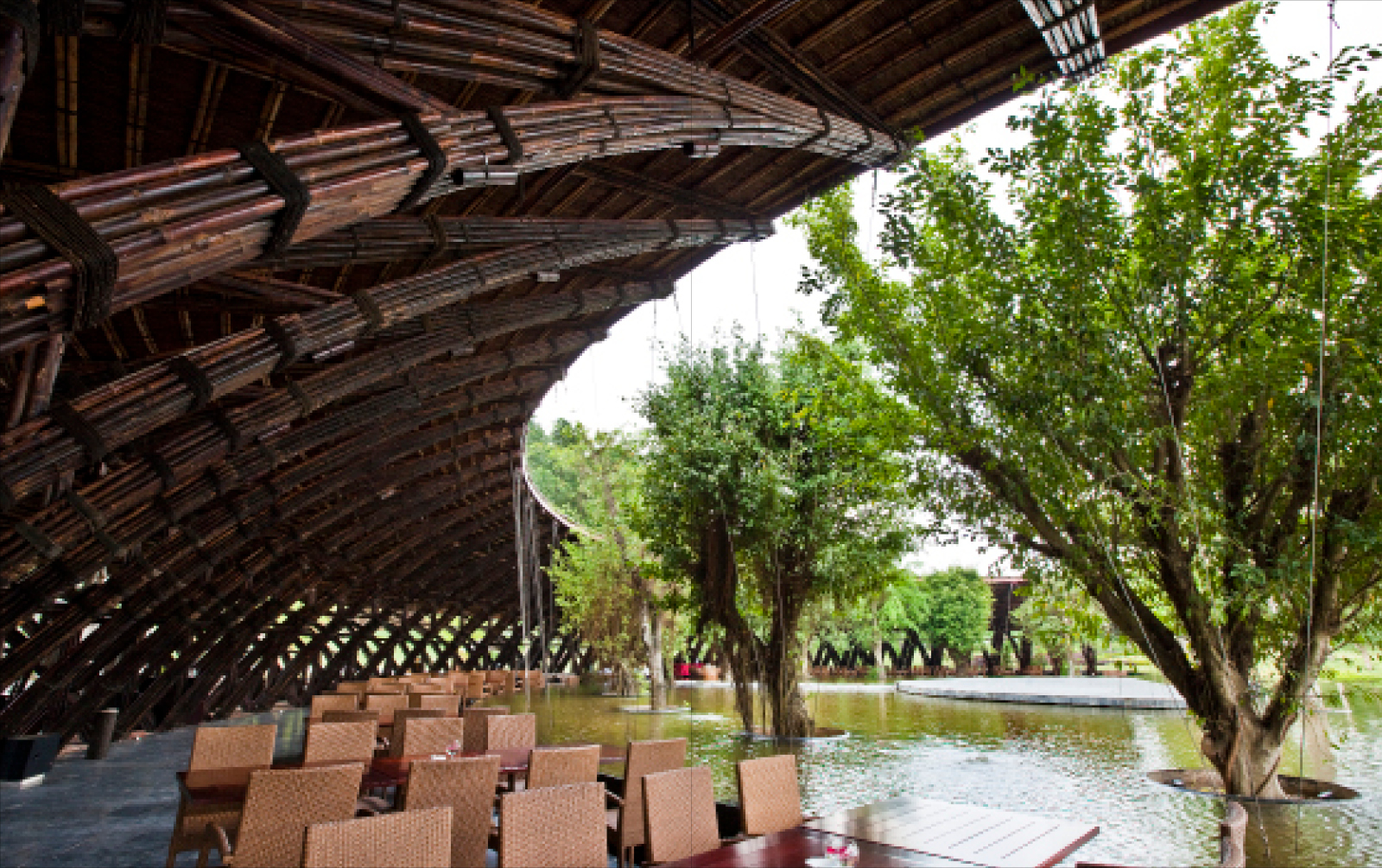The work of Vo Trong Nghia is a call for architecture to transform itself from a source of pollution to a reason for hope. The World Green Building Council estimates that thirty-nine percent of energy-related carbon emissions can be attributed to buildings. An awareness of architecture’s responsibilities has permeated the profession and new ideas and solutions are coming from places where these issues are most acute. Following a long recovery from decades of war, Vietnam has emerged as one of the most exciting centers of design in Asia—led largely by the work of architect Vo Trong Nghia, whose work has gained an international following.
The buildings of Vo Trong Nghia Architects, established in Ho Chi Minh City in 2006, make clear reference to the past, and to Vo’s own adherence to the Five Precepts of Buddhist teaching. The architect’s two main themes—green architecture and bamboo as a building material—form the basis of this two-volume celebration of his work. From the Wind and Water Bar, his first foray into bamboo as a building material, to resort complexes, art installations, and his game-changing series of residences, House for Trees, Vo Trong Nighia: Building Nature proves that green architecture creates local relevance, beauty, and elegance in its own right.
Contributors
Vo Trong Nghia
Author
Vo Trong Nghia studied architecture at the Nagoya Institute of Technology and the University of Tokyo, before founding Vo Trong Nghia Architects in 2006 in Ho Chi Minh, Vietnam. His designs are at the forefront of “green” architecture and sustainable practices, and have received numerous accolades, including multiple World Architecture Community Awards and a Wallpaper* Design Award.
Philip Jodidio
Introduction By
Philip Jodidio is the author of numerous books on architecture, including monographs on Tadao Ando, Santiago Calatrava, Norman Foster, Richard Meier, Jean Nouvel, and Zaha Hadid.


